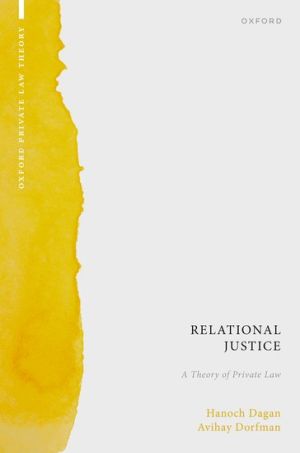
What makes private law private? What is its domain? What are the values it promotes? Relational Justice: A Theory of Private Law addresses these foundational questions in a robust analysis of the key doctrines of private law, including torts, contracts, and restitution.
Discarding the vision of private law as a bastion of negative duties of non-interference or efficiency maximization, this book reframes private law in terms of what it calls 'relational justice' - reciprocal respect for self-determination and substantive equality. By vindicating self-determination, private law can forge the horizontal interactions vital to the ability to shape and implement a conception of the good life. By structuring these interactions in terms requiring parties to respect one another for who they are, private law can cast them as interactions between equals.
In the book's first part, the authors set out a normative position they term relational justice, whereby the rules of private law abide by the fundamental maxim of reciprocal respect for self-determination and substantive equality. The second part of the book applies this framework to an analysis of familiar private law doctrinal areas, followed by a third part charting newer areas including workplace safety, poverty, discrimination, and implications for international law. Throughout, the authors show how relational justice theory provides a normative vocabulary for evaluating core features of existing private law, while suggesting directions for necessary or desirable reforms.